Infancy (9 months – 3 years)
The infancy program (infant and toddler) focuses on supporting young children’s natural curiosity and developmental needs from birth to age 3. These programs provide an environment where infants and toddlers can explore, develop motor skills, language, and social skills, and foster independence.



What is offered in the Infancy Program
– Supports natural development of motor, sensory, and cognitive skills- –
– Encourages independence and confidence
– Builds secure, trusting relationships with caregivers
– Provides an environment tailored to the unique needs of infancy
By fostering independence, security, and respect for natural developmental milestones, Montessori programs for infants create a solid foundation for growth, exploration, and learning in the earliest years.
Timings:
10:00 AM to 12:00 PM
Monday to Friday
(Daily/Weekly/Bi-weekly)
Primary (3-6 years)
The primary program refers to the educational approach developed by Dr. Maria Montessori for children aged around 2 to 6 years old. The primary aim of Montessori education at this level is to nurture the child’s natural curiosity and love of learning by providing a prepared environment that fosters independence, exploration, and self-discovery.
In the primary Montessori environment, you’ll often find mixed-age groups, with children encouraged to learn from one another and progress at their own pace. The environment is carefully designed with Montessori materials and activities that cater to various developmental areas, including practical life skills, sensorial exploration, language development, mathematics, and cultural studies (which may include Geography, Biology, and Science).
Teachers or the prepared adults in a primary Montessori program act more as guides or facilitators, observing each child’s interests and abilities and providing individualized support and guidance when needed. The emphasis is on hands-on, experiential learning, allowing children to engage deeply with concepts and develop a strong foundation for future learning.
A primary Montessori program aims to foster independence, critical thinking, creativity, and a lifelong love of learning in young children.
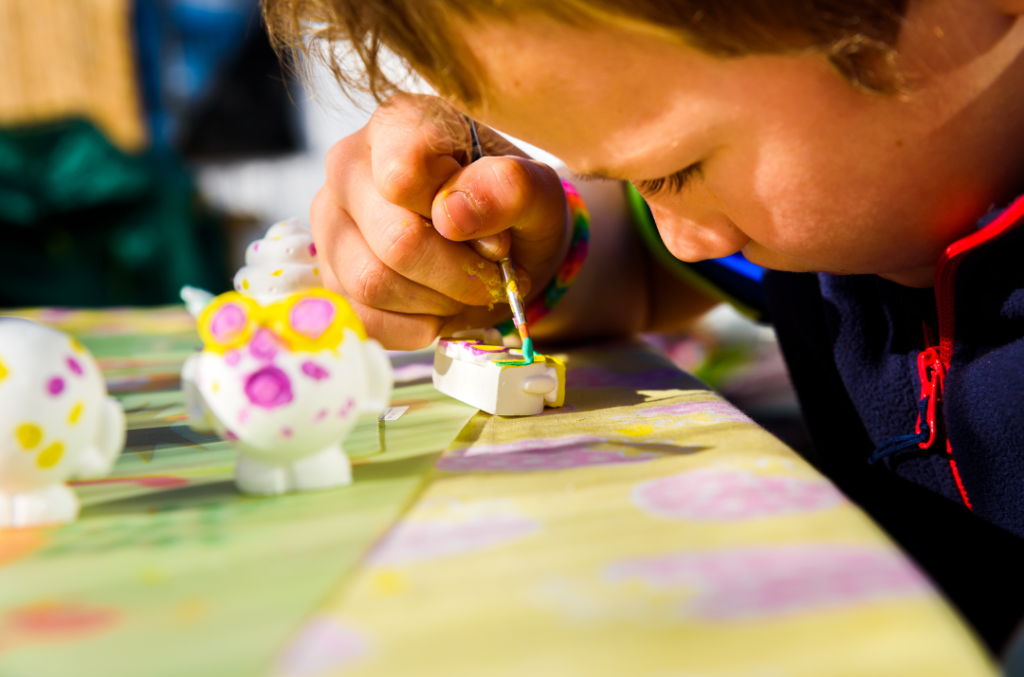
What is offered in the Primary Program
Exercises of Practical Life: These activities focus on developing fine motor skills, independence, and care for the environment. They may include tasks such as pouring, spooning, sweeping, and polishing.
Sensorial Materials: Sensorial materials help children refine their senses and understand abstract concepts like size, shape, color, texture, taste, and sound. Examples include the pink tower, knobbed cylinders, and the binomial cube.
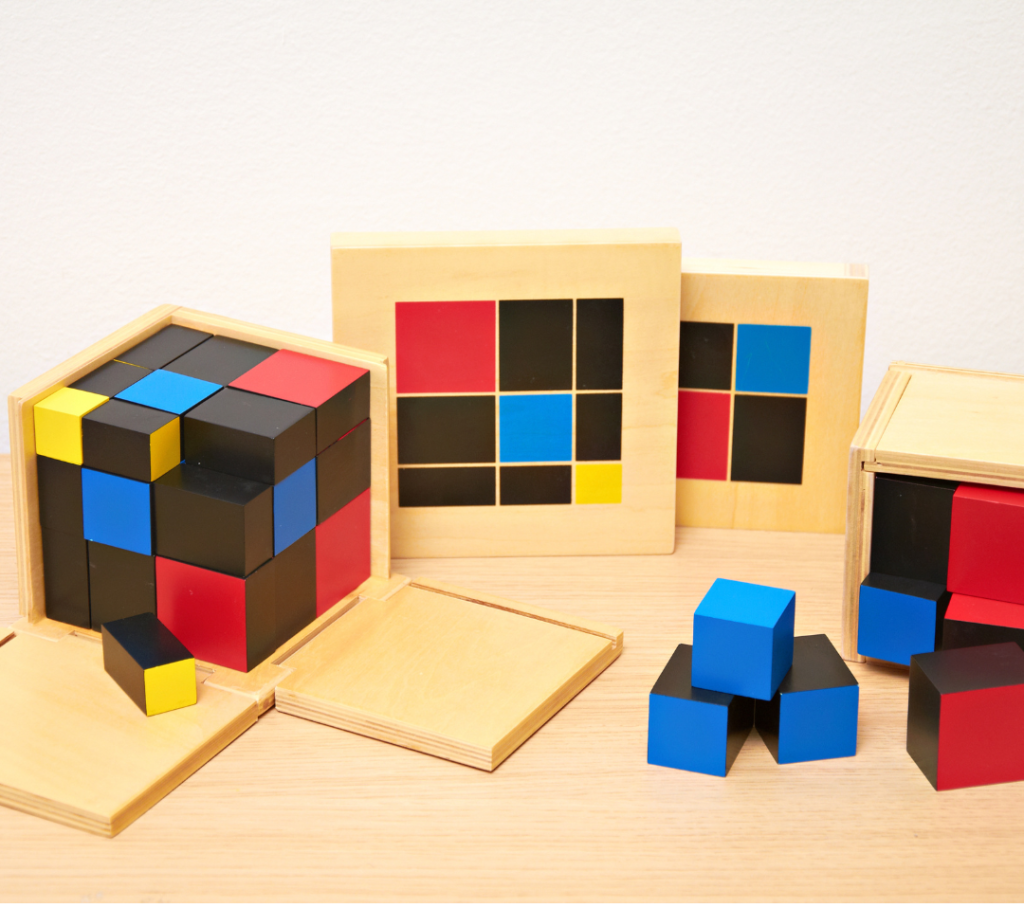
Language Development: Montessori environment provide a rich language environment through storytelling, vocabulary development, phonetic activities, and exposure to writing and reading materials such as sandpaper letters, movable alphabets, and picture cards(nomenclature cards and classified pictures).
Mathematics: Children explore mathematical concepts concretely through materials like number rods, spindle boxes, golden beads, and the decimal system. This hands-on approach helps them develop a deep understanding of mathematical principles.
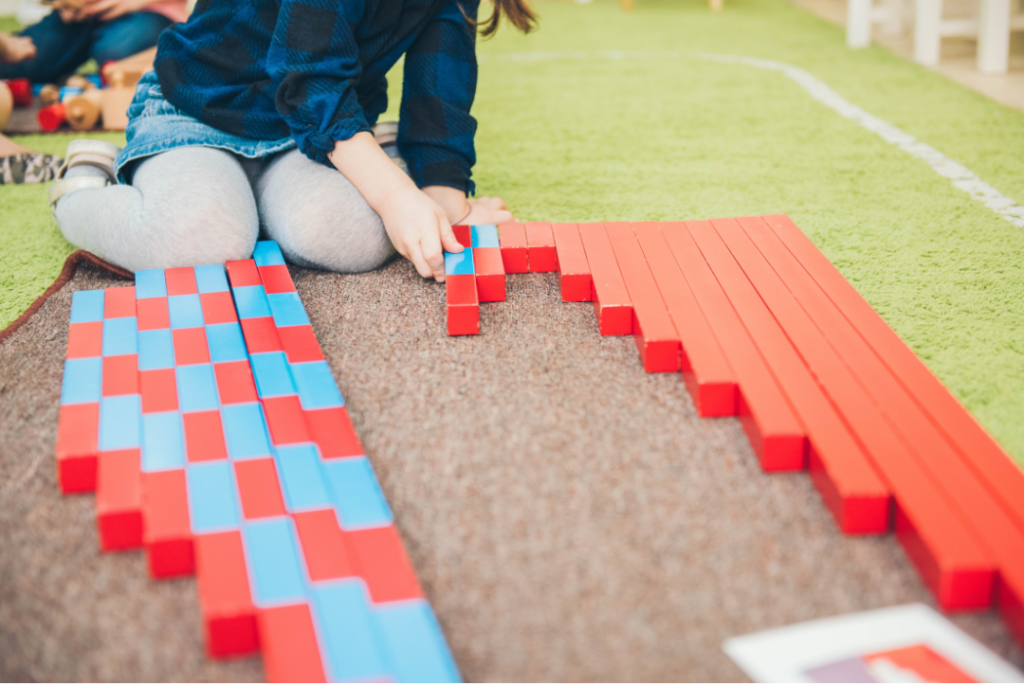
Cultural Studies: Cultural studies in a Montessori primary environment encompass
geography, science, and the arts. Children learn about the world around them through map activities, land and water forms, classified pictures, nomenclature cards, nature exploration, and cultural celebrations.
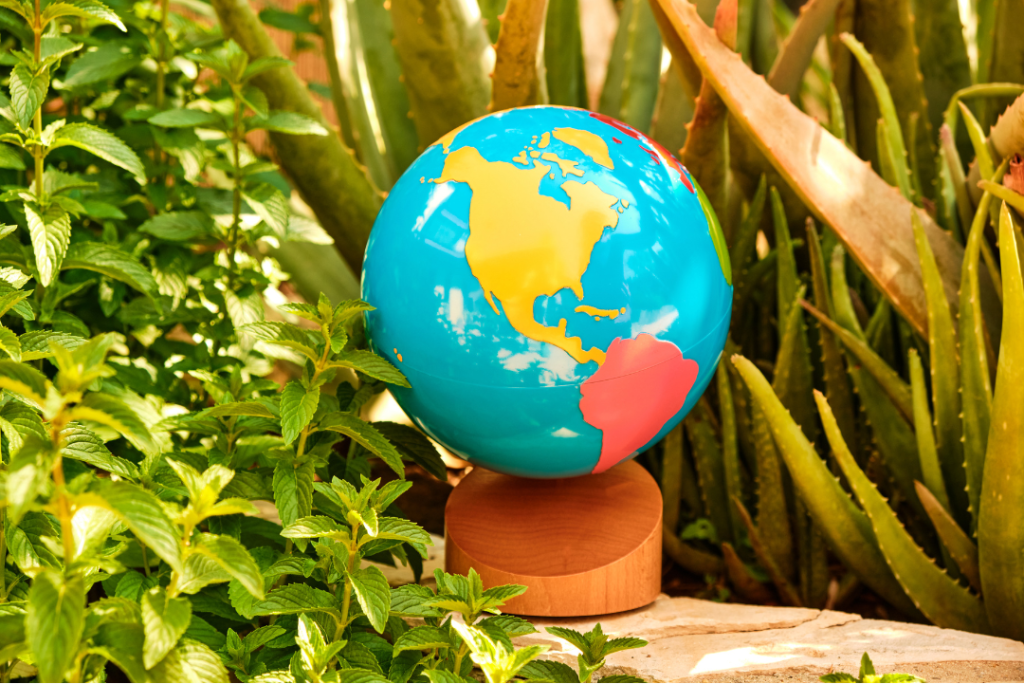
Children are introduced to beautiful materials where they work with their hands and move from concrete to abstract understanding of the concepts. Their learning is backed with solid research and understanding of child psychology. Children love going back to the environment where they are nurtured, respected and belong.
Timings:
8:50 AM to 12:20 PM
Monday to Friday
Elementary Program (6 – 12 years) [Upcoming]
The “second plane” in Montessori education refers to the second stage of development in a child’s life, according to Maria Montessori’s theory of child development. It typically encompasses the elementary school years, roughly from ages 6 to 12. Here are some key characteristics of the second plane of development in Montessori education:
Ages 6 to 12: The second plane of development covers the elementary school years, which typically include grades 1 through 6. During this stage, children experience significant physical, cognitive, social, and emotional development.
Exploration and Imagination: Children in the second plane are highly imaginative and curious. They have a natural desire to explore the world around them and ask questions about how things work. Montessori classrooms provide opportunities for hands-on exploration and learning through concrete experiences.
Abstract Thinking: As children progress through the elementary years, they develop the ability to think abstractly and engage in more complex reasoning. Montessori materials and lessons are designed to support this cognitive development by providing concrete representations of abstract concepts.
Peer Collaboration: Second plane children enjoy working and learning collaboratively with their peers. Montessori classrooms typically have mixed-age groupings, allowing older children to mentor and assist younger ones, and fostering a sense of community and cooperation.
Independent Learning: While collaboration is important, Montessori education also emphasizes the development of individual autonomy and self-directed learning. Children are encouraged to take ownership of their learning and pursue their interests at their own pace.
Integrated Curriculum: Montessori elementary programs typically offer a holistic, integrated curriculum that spans multiple subjects, including mathematics, language arts, science, geography, history, and practical life skills. Lessons and activities are interconnected, allowing children to make connections and see the relevance of their learning across different domains.
Social and Emotional Development: Montessori education places a strong emphasis on the social and emotional development of children. Second plane children learn important skills such as empathy, communication, conflict resolution, and leadership through collaborative work and interaction with their peers.
Cosimic Education: Cosmic Education is a cornerstone of the Montessori method, emphasizing the interconnectedness of all things in the universe. It’s about providing children with a holistic understanding of the world and their place within it, fostering a sense of awe, wonder, and respect for the natural world and humanity’s role in it. It covers topics such as astronomy, geology, biology, history, geography, and anthropology, aiming to inspire curiosity, critical thinking, and a sense of responsibility towards the environment and society.
Storytelling of the truth: Montessori education is filled with engaging and enriching stories that captivate children’s imaginations while imparting important lessons and values. The great stories are a series of five stories designed to introduce children to big concepts and inspire wonder about the universe. They include stories about the creation of the universe, the coming of life on Earth, the development of language, the history of numbers, and the timeline of human civilization. These stories are not only informative but also serve as a springboard for further exploration and learning in various subject areas, including science, geography, history, and language arts. They ignite children’s curiosity and lay the foundation for a lifelong love of learning.
The second plane of development is a critical period of growth and exploration, during which children build a strong foundation for future learning and development.
What is offered in the elementary program
In a Montessori elementary program, the curriculum typically covers a wide range of subjects, offering a holistic education that integrates various areas of learning. Here are some of the subjects commonly included in Montessori elementary education:
Mathematics: Montessori mathematics curriculum begins with concrete materials that help children understand abstract mathematical concepts. Students progress from basic arithmetic to more advanced topics such as geometry, algebra, and fractions.



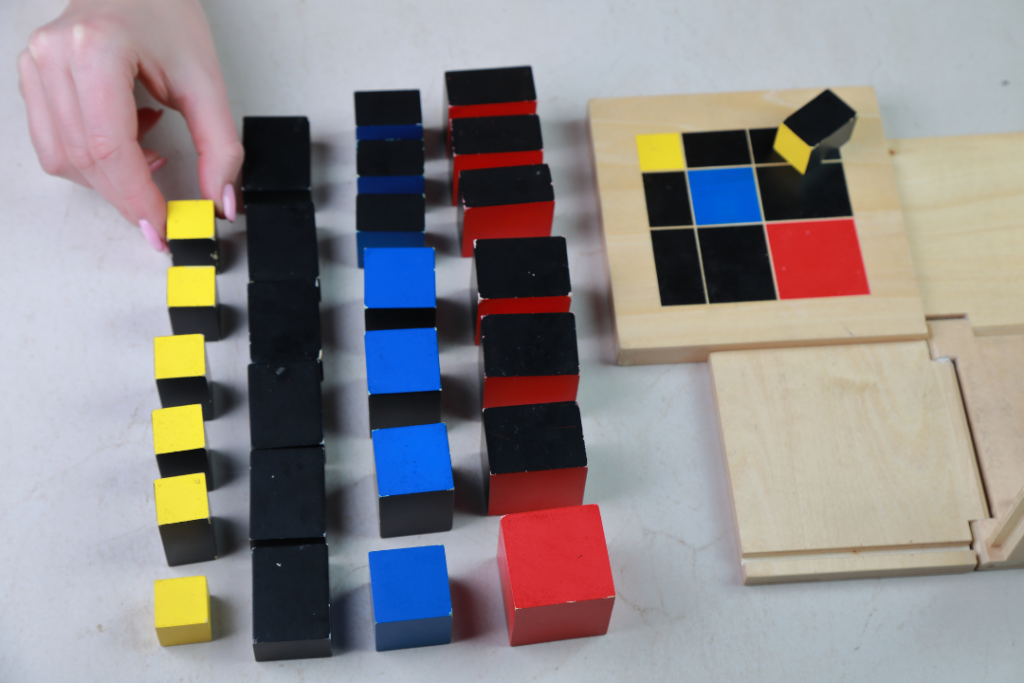
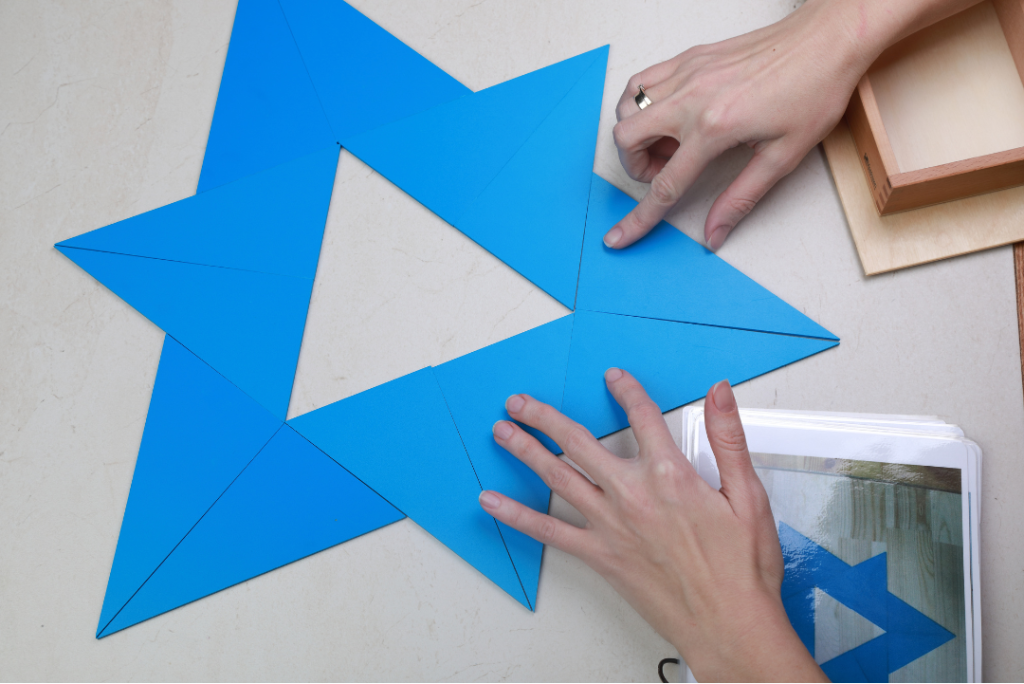
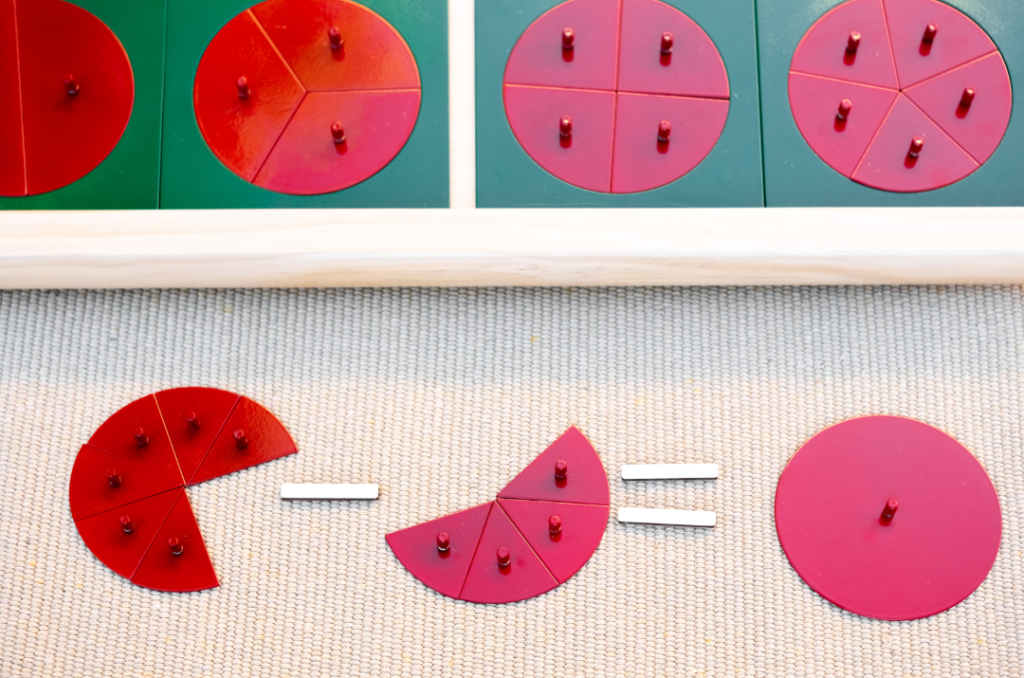
Language Arts: Montessori language arts curriculum includes reading, writing, grammar, spelling, and vocabulary development. Students learn to read and write using phonics-based methods and engage in literature exploration to develop comprehension and critical thinking skills.
Science: Montessori science curriculum covers a range of topics including biology, chemistry, physics, earth sciences, and environmental science. Students explore scientific concepts through hands-on experiments, observation, and inquiry-based learning.
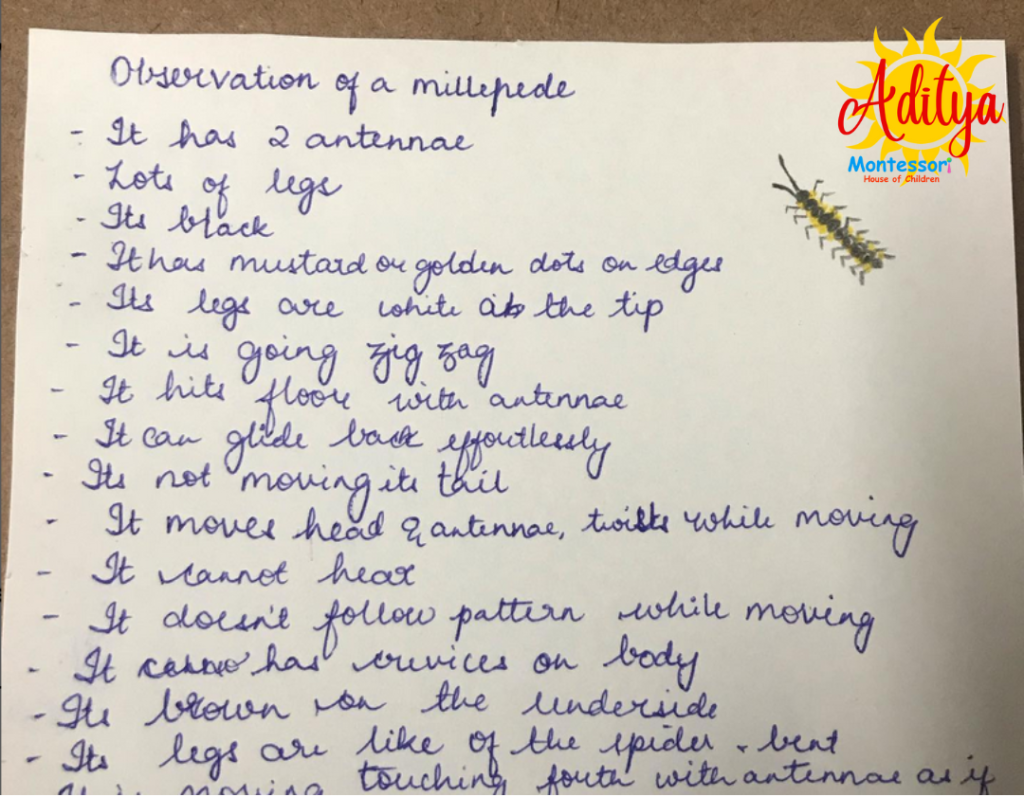
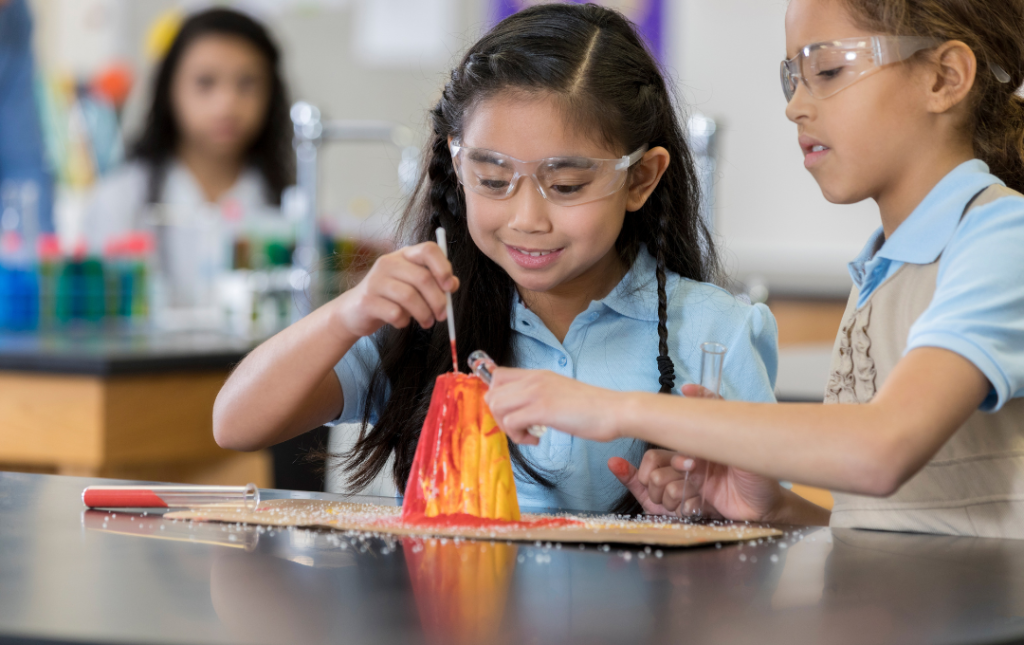
History: Montessori history curriculum introduces students to key historical concepts, events, and figures from various time periods and cultures. Students develop an understanding of the interconnectedness of human history and the impact of historical events on society.
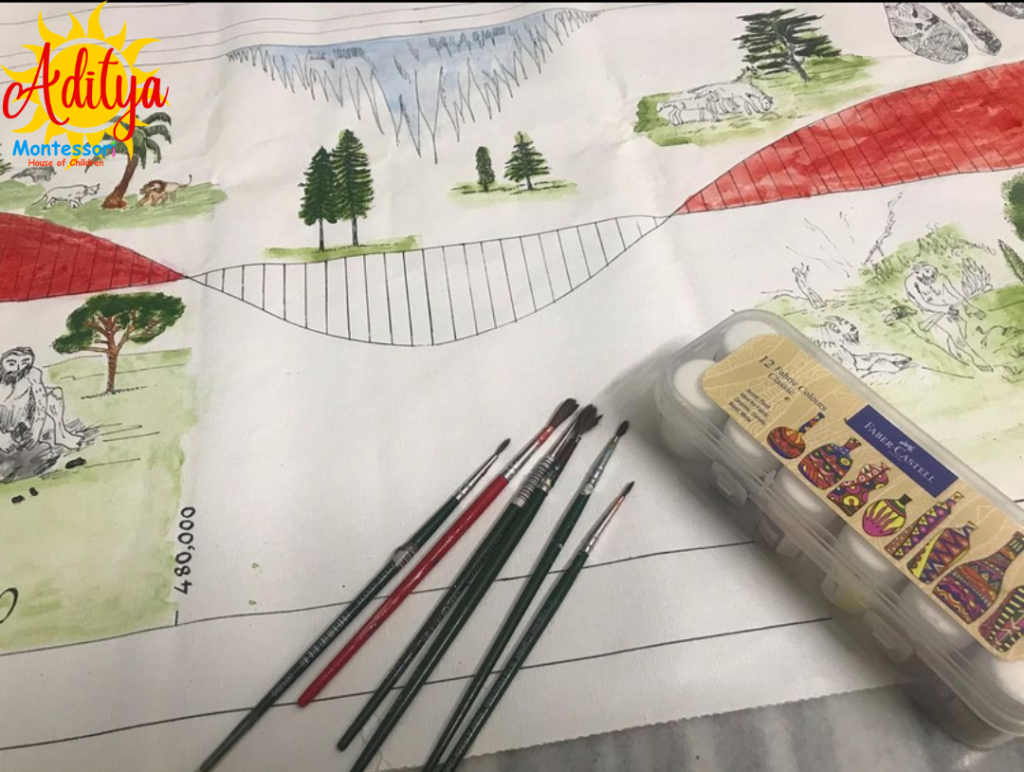
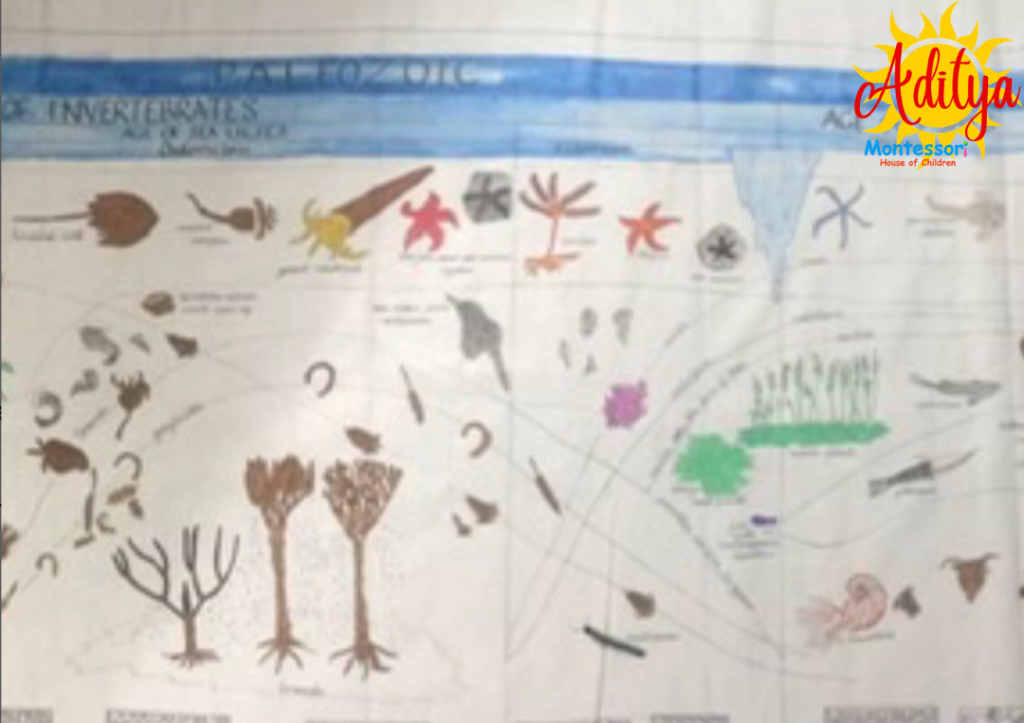
Geography: Montessori geography curriculum includes the study of physical geography (such as landforms, climate, and natural resources) and cultural geography (such as maps, regions, and cultural diversity). Students also explore concepts related to global citizenship and environmental stewardship.
In addition to history and geography, Montessori elementary programs often include social studies topics such as civics, economics, sociology, and current events. Students learn about social structures, government systems, and global issues affecting society.
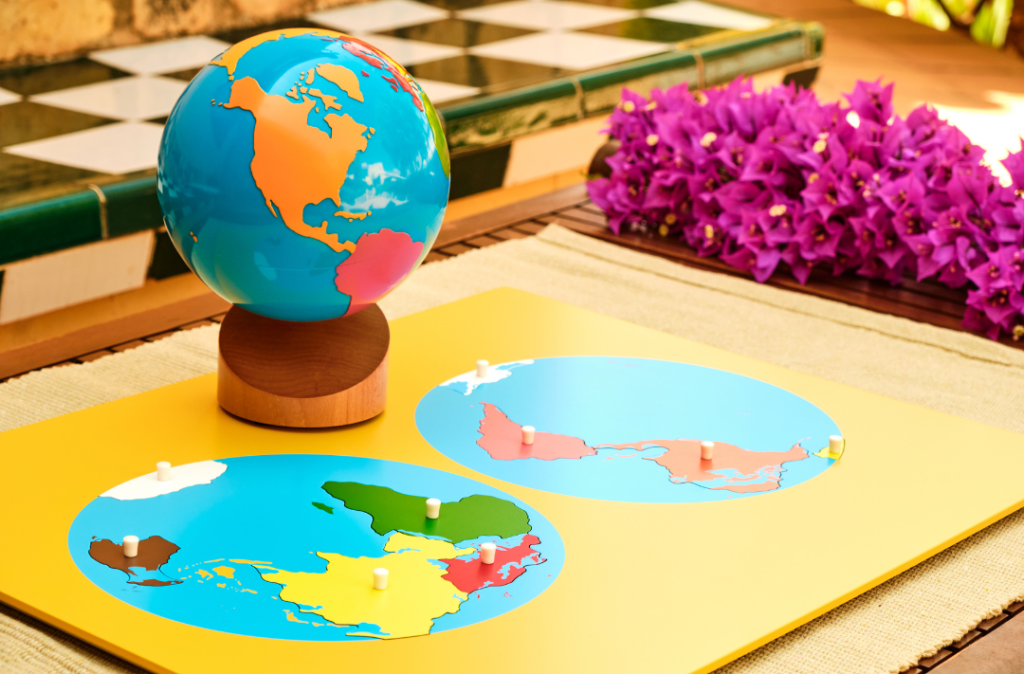
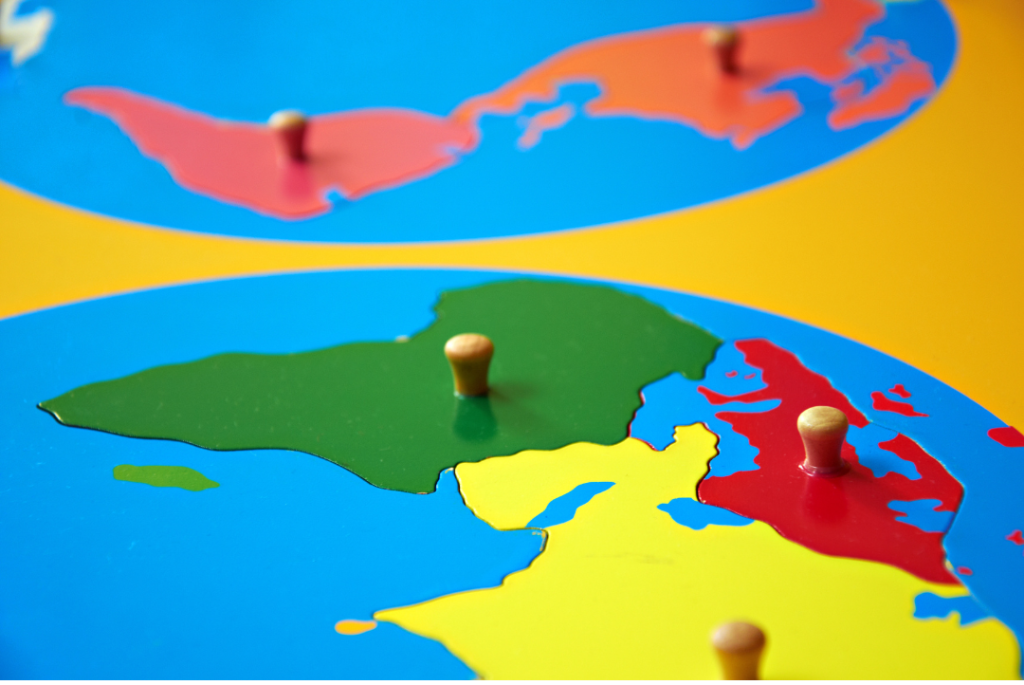
Practical Life Skills: Montessori education emphasizes the development of practical life skills that help students become independent and responsible individuals. This may include activities such as cooking, gardening, sewing, woodworking, and personal care routines.
Art and Music: Montessori elementary programs often incorporate art and music education as integral components of the curriculum. Students have opportunities to explore various art mediums, musical instruments, and creative expression through individual and group projects.
Physical Education: Montessori elementary programs recognize the importance of physical activity and healthy living. Students engage in a variety of physical activities, games, and sports to develop gross motor skills, coordination, and teamwork.
These subjects are typically integrated into the Montessori curriculum in a way that promotes interdisciplinary learning and allows students to make connections between different areas of knowledge.
Timings:
10:00 AM to 3:00 PM
Monday to Friday